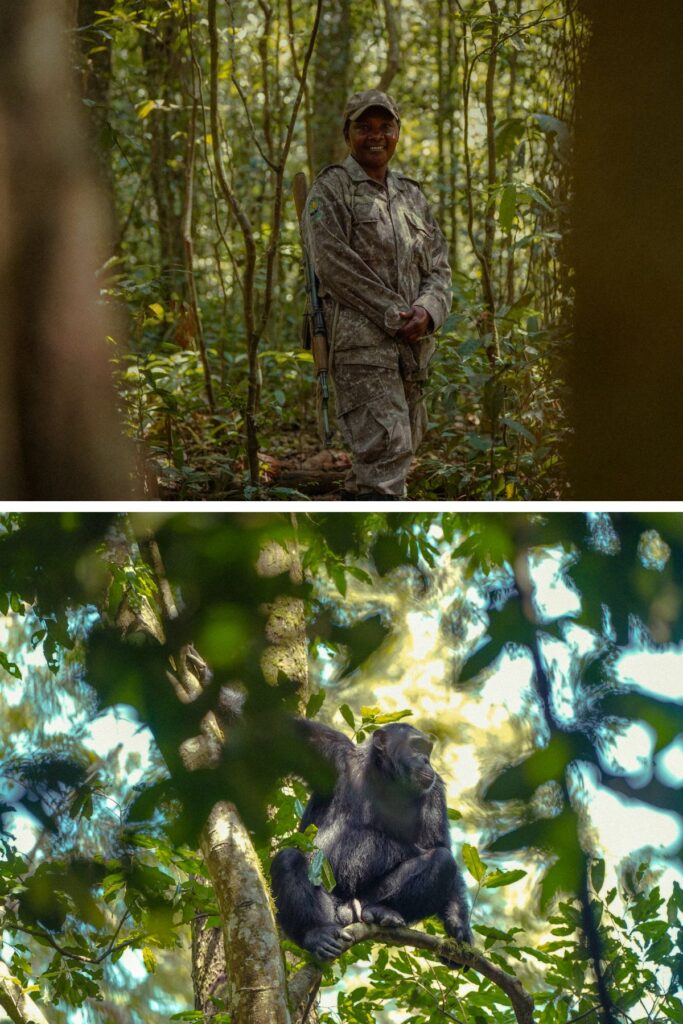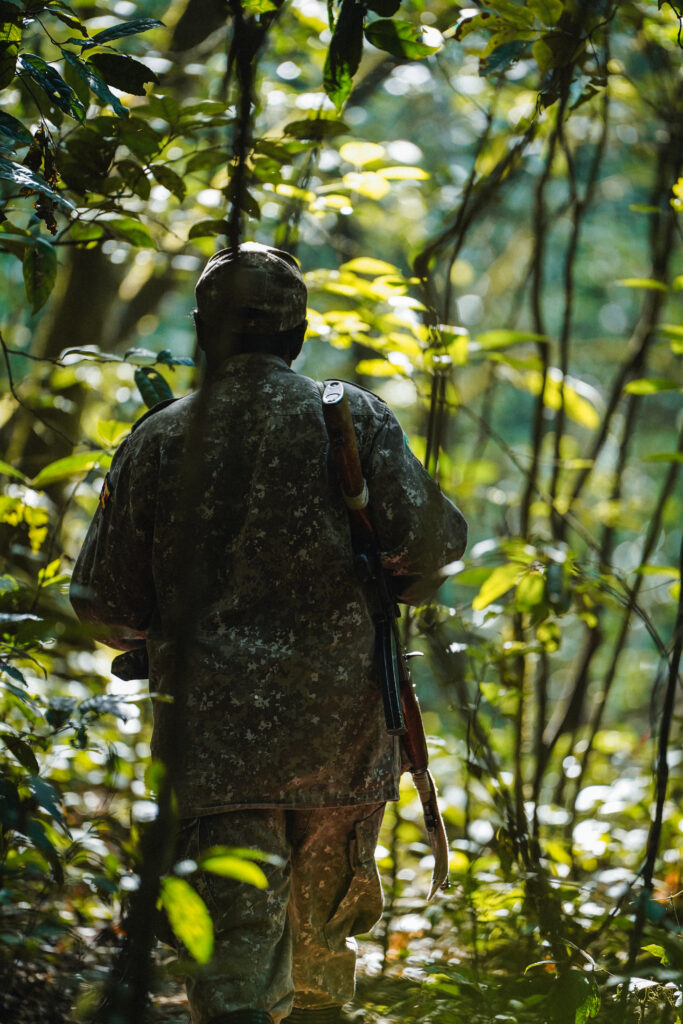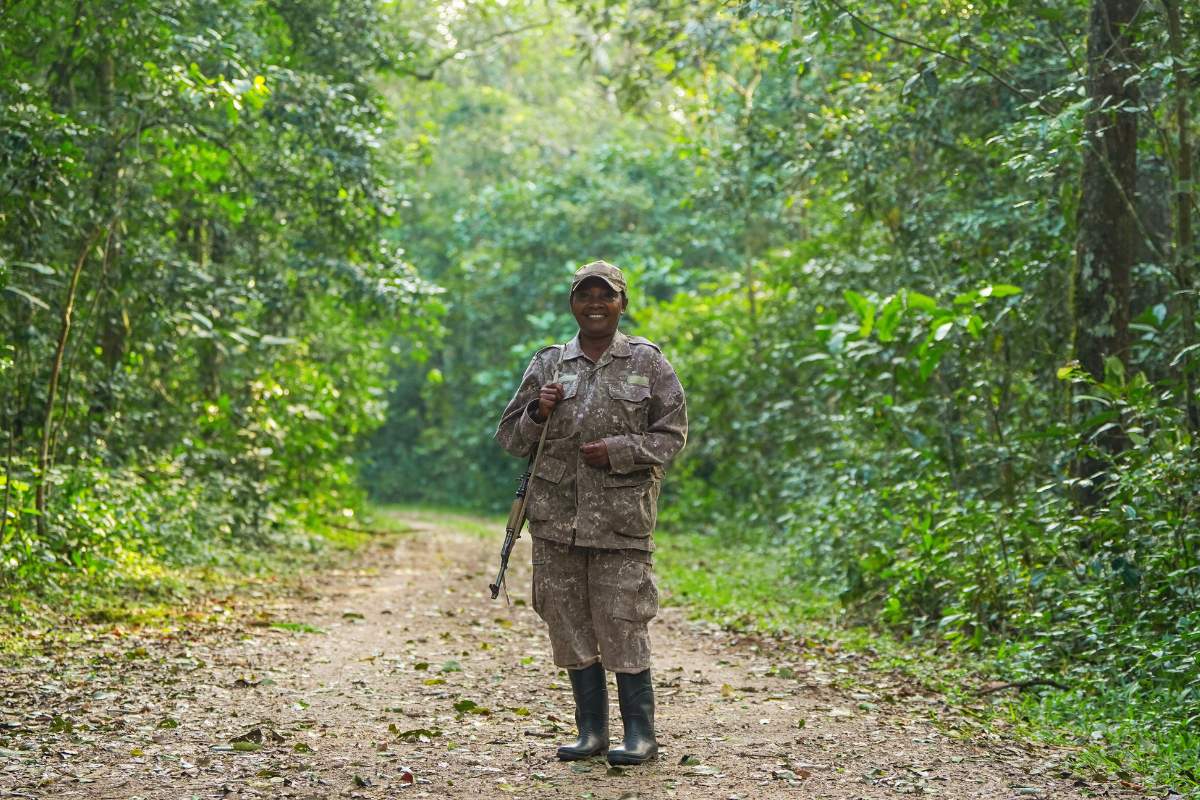Growing up in Uganda, Jesca always had an appreciation for the natural world. She loves chimps. Like really loves them. There was something so calming about trekking chimps with her.
She has mastered the art that so many of us struggle with—the ability to simply be, to be fulfilled by the simple things in life, and the ability to embrace nature and let it lead you. There is no fear, only curiosity and respect for these wild places and the wildlife that inhabits them. Casually finding chimp knuckle tracks as she walks in the forest that no one else would have seen, tracking these apes with her was nothing short of incredible. It was so amazing experiencing these animals (they are so similar to us! ), but also so wonderful to witness Jesca in her happy place and get to know this extraordinary human being.
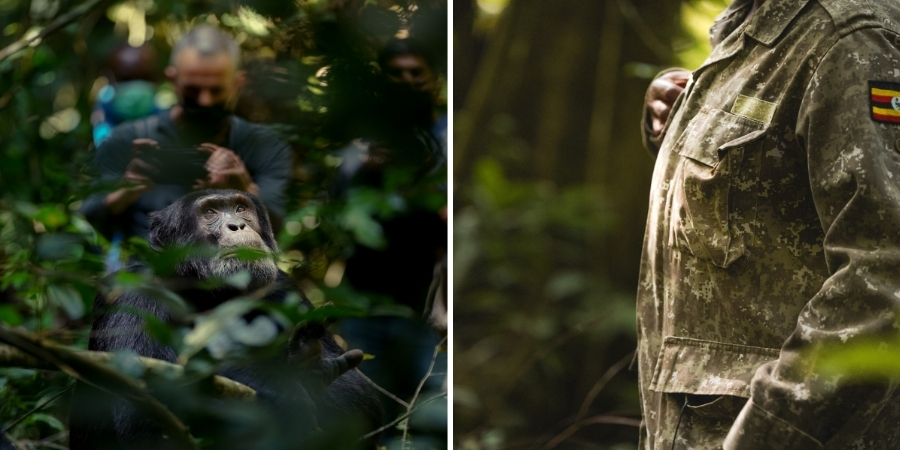
Jesca is one of the few female rangers and guides specializing in trekking chimpanzees in Kibale National Park, Uganda. Her 15-year conservation career began with a deep passion for wildlife. She was one of the first female rangers recruited for Kibale National Park, a 795-square-kilometer haven for primates in southwestern Uganda. The park boasts the highest number and diversity of primates in East Africa, with around 1,500 chimpanzees, including 120 habituated individuals that Jesca helps tourists track and observe.
Her role is multifaceted, covering patrolling, wildlife monitoring, combating poaching, engaging local communities, and assisting with tourism development. In the local communities, Jesca continually inspires women and girls to enroll in training to become guides and rangers if this is their dream. Some young women in the community have said, “I want to be like Jesca!”
Jesca’s extensive knowledge of Kibale National Park and its chimpanzees is remarkable. She understands their routines, diets, social structures, and tracking methods. While working every day in this jungle can be challenging, Jesca is driven by her passion and love for chimpanzees and has dedicated her life to protecting them. Her dedication and enthusiasm are a testament to the vital role of rangers in protecting our natural world.
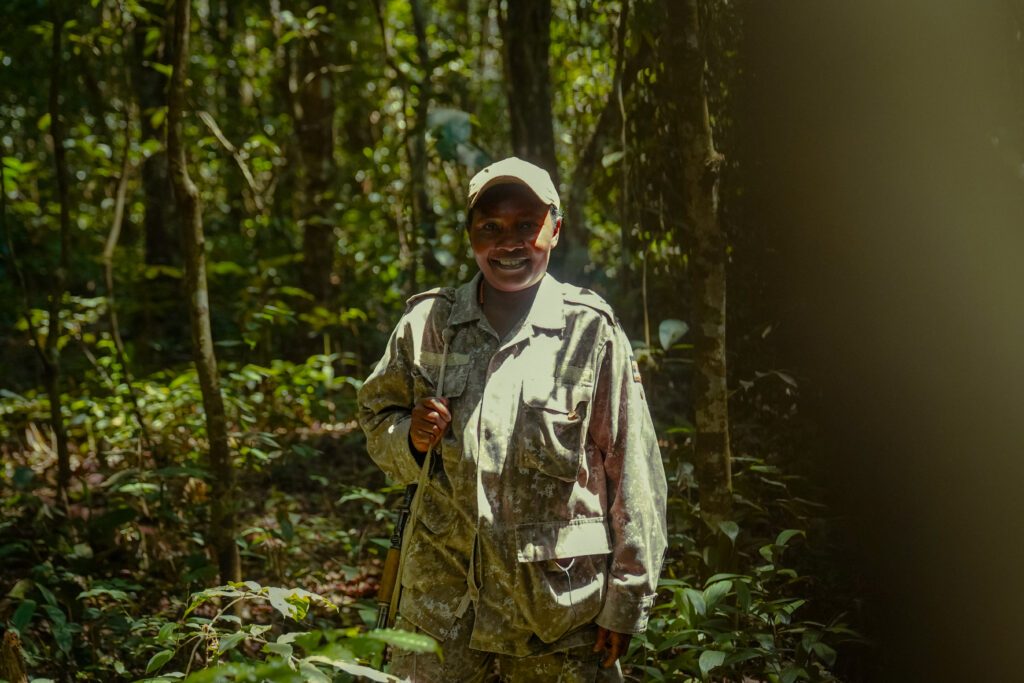
Celebrating female rangers like Jesca is essential because it recognizes their significant contributions to conservation, inspires more women to join the field and to believe in themselves, and challenges gender stereotypes. By acknowledging their achievements, we can promote diversity and inclusion in the conservation industry, leading to more effective and sustainable conservation outcomes.
Jesca’s story is a powerful example of how community engagement and local leadership are transforming conservation efforts in Africa. Leaders like Jesca are not just protectors of wildlife but also pivotal figures in fostering community development and sustainable tourism.
In Africa, conservation cannot thrive without the support and involvement of local communities. Conservation leaders engage with these communities to create awareness, provide education, and develop programs that benefit both people and wildlife. By involving communities, conservation initiatives can address local needs and gain the essential buy-in for long-term success.
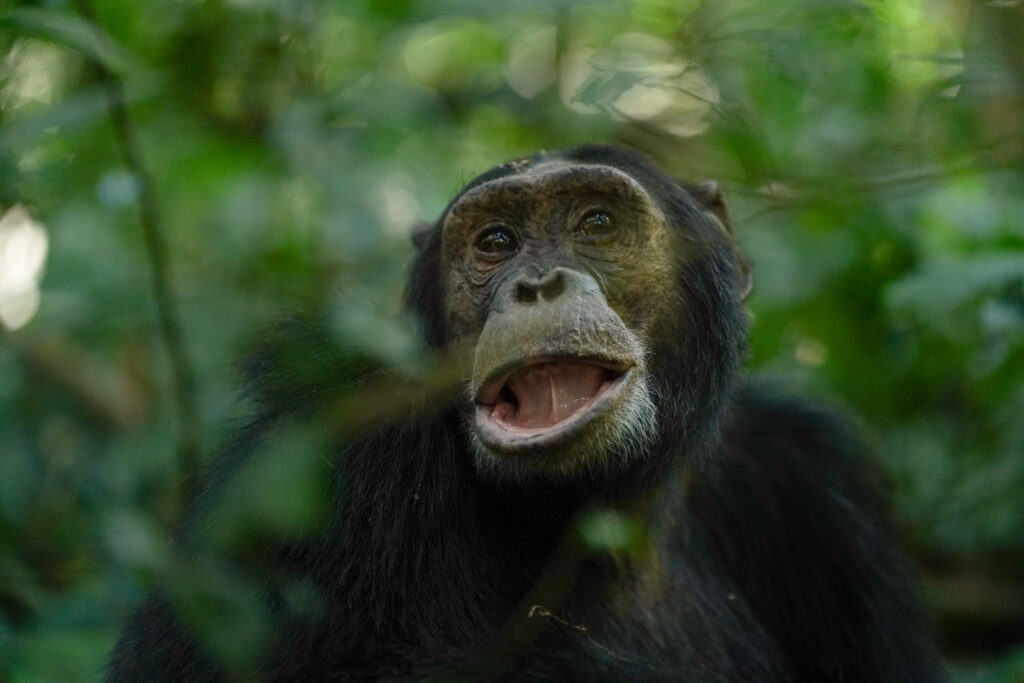
Tourism plays a crucial role in conservation, providing the financial resources needed to protect wildlife and habitats. Tourism in places like Kibale National Park generates revenue that supports conservation projects and local economies. It also raises global awareness about the importance of preserving these natural treasures.
African leaders in conservation, like Jesca, are at the forefront of these efforts. They understand the delicate balance between protecting biodiversity and supporting community livelihoods. Their work ensures that conservation is not seen as an external imposition but as a collaborative effort that benefits all stakeholders.
Jesca’s work with tourism development is particularly significant. By guiding tourists and educating them about chimpanzees and their environment, she helps build a broader understanding and appreciation for wildlife. This, in turn, encourages more people to support conservation initiatives financially and politically.
Moreover, the impact of role models like Jesca cannot be overstated. She inspires young women to pursue careers in conservation, challenging traditional gender roles and contributing to gender equality in the field. Her success shows that women can and do play a critical role in protecting our natural world and can do things they perhaps never thought possible.
By celebrating and supporting leaders like Jesca, we can ensure that conservation efforts are inclusive, effective, and sustainable for generations to come.
I don’t know where you are right now in the world, but Jesca is on the ground at the forefront of Great Ape conservation, amongst others. For 15 years, she’s been working tirelessly to protect Uganda’s wilderness while sharing the profound experience of spending time with chimpanzees in the wild with others. Living harmoniously alongside them and learning skills that few have. We are grateful for Jesca. No matter how small her role may seem, I assure you it is large, contributing daily to preserving our natural world—that is all of our heritage.
